Our team of experts can help you review your plans to ensure they meet any required regulatory standards and best practices in your field while also looking for opportunities for integration with the response plans of the supporting organizations in your areas of operation. We will also offer practical recommendations to improve your organizational resilience and readiness.
Organizational Plan Review
Business Continuity Planning
Business continuity is the capacity of an organization to continue essential functions and operations during and after a disruptive event or crisis. Effective plans and strategies are crucial for the uninterrupted continuation of vital business processes, systems, and services amidst disruptions. An efficient business continuity plan enables organizations to reduce downtime, manage risks, and recover quickly from unexpected events like pandemics, natural disasters, cyberattacks, or economic downturns. The objective is to maintain service, fulfill their requirements, and protect the organization's reputation even during difficult times.
A business continuity plan enhances an organization's resilience and preparedness, ensuring it is equipped to handle any potential challenges.
Applications of ICS
The Incident Command System (ICS) is a widely recognized incident management tool that is intended to work for all types of organizations and circumstances. However, many non-first responder organizations find the traditional ICS training programs challenging to apply inside their organizations' existing emergency, crises, and business continuity plans. Fortress Consulting offers a 16-hour program dedicated to the practical and reasonable integration of ICS into the organization.
Exercise Design and Delivery
An emergency exercise program is a comprehensive system that aims to prepare individuals, organizations and communities for potential crisis situations. This program involves a series of training exercises and simulations that simulate real-life emergencies, such as natural disasters or terrorist attacks. The main goal of this program is to enhance the response capabilities of employees, emergency personnel, and, where relevant, members of the general public. Through these exercises, participants can practice and refine crucial skills, such as first aid, evacuation procedures, and communication protocols. Additionally, the program also focuses on raising awareness and educating about potential risks and how to effectively respond to them. By actively engaging in these exercises, our clients will become better prepared to handle emergencies and minimize the impacts.
Emergency Response Planning
Hazard Risk Vulnerability Assessment
A hazard risk vulnerability assessment is a process that is used to evaluate the potential risks and vulnerabilities associated with a threat. This assessment helps to identify what is most at risk and provides a basis for developing strategies to mitigate those risks. The assessment involves analyzing the threat, determining the potential impacts on infrastructure and the environment, and assessing the vulnerability of the organization and its people. By understanding the hazards and vulnerabilities, organizations can take appropriate measures to reduce the potential impacts and increase their resilience. This assessment is crucial for effective emergency planning and preparedness, as it helps to prioritize resources and interventions to minimize the risks and protect the well-being of communities.
Realistic emergency plans are crucial for any organization or community to ensure preparedness and mitigate the impact of unforeseen events. These plans outline the necessary steps and procedures to be taken in case of emergencies such as natural disasters, fires, or medical emergencies. They must contain realistic assumptions based on current internal capacities and those of the supporting agencies they rely on. These plans provide guidelines on evacuations, communication protocols, and resource allocation to guarantee the safety and well-being of individuals involved. Effective emergency plans are comprehensive, regularly exercised and updated to reflect any changes in the environment or organizational structure. They also involve training programs to educate individuals on their roles and responsibilities during emergency situations. By having well-developed emergency plans in place, organizations and communities can minimize panic, confusion, and potential harm, allowing for a swift and coordinated response when it matters most.
Exercise Program Development
An emergency exercise is a simulation of an emergency situation. The primary purpose of an exercise is to validate plans, develop staff competencies, and provide a safe environment to learn, practice, carry out roles and responsibilities, and test established procedures. There are several types of exercises: walkthroughs, workshop or orientation seminars, tabletop exercises, functional exercises, and full-scale exercises. Emergency exercises are a comprehensive way of realistically evaluating plans, standard operating procedures, and policies. Areas that require improvement are identified, and options for consideration are provided.
Emergency Management Program
Emergency Operations Centre Needs Assessment
Periodic needs assessments of the Emergency Operations Centre is a crucial process in ensuring effective emergency response. This assessment aims to evaluate the current capacity and resources of the physical and virtual Ops Centre, identifying any gaps or areas for improvement. By conducting this assessment, emergency management professionals can identify the strengths and weaknesses of the Centre, enabling them to make informed decisions and allocate resources accordingly. The assessment will also evaluate the Centre's communication systems, information management procedures, and coordination mechanisms. Through this process, the Emergency Operations Centre assessment will help organizations efficiently plan for growth and integration of future technology.
The development of a comprehensive emergency management program enables our clients to integrate various planning products into the organizational culture. By implementing a comprehensive emergency management program, our clients will effectively maintain the various plans and policies needed to respond and recover quickly to disruptive events and emergencies. This program empowers a self-sufficient ever-green approach to resilience.
If any of these services interest you, please get in touch with us. We would be happy to discuss your needs.


